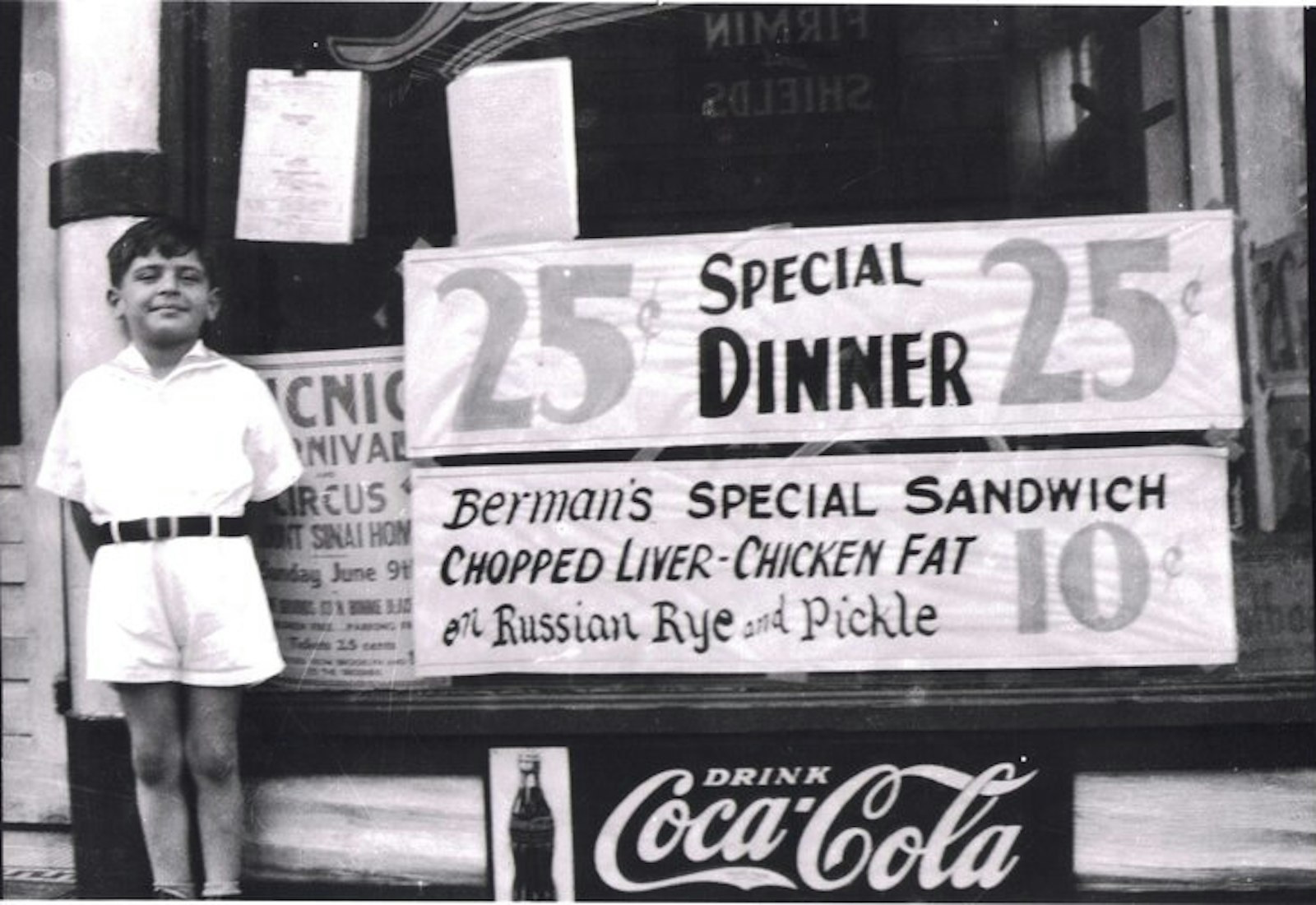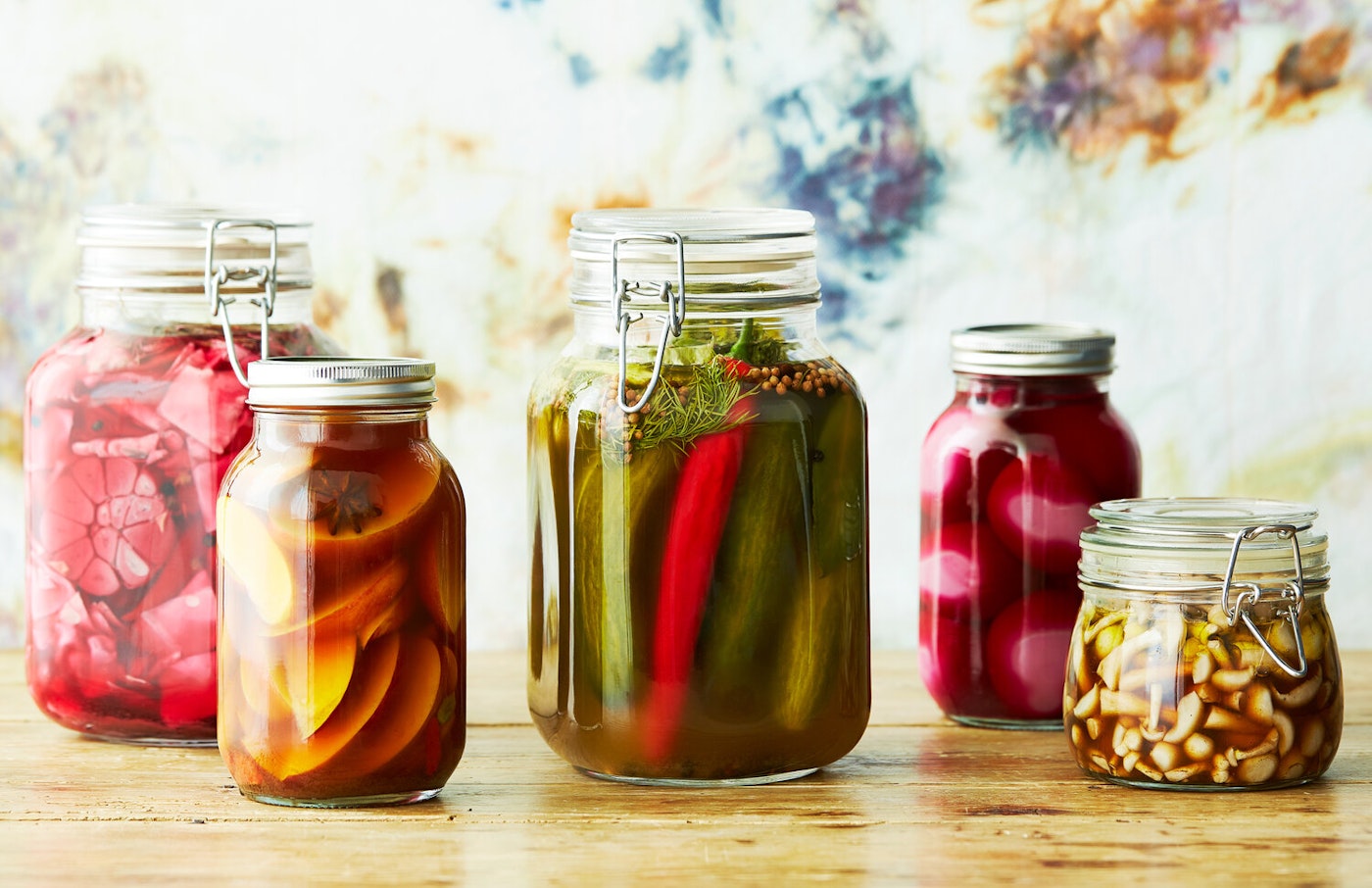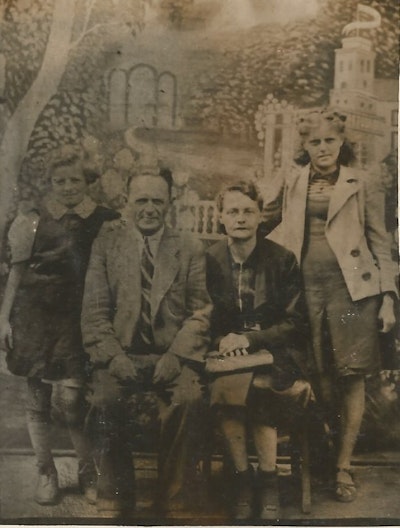Shared by Noa Berman-Herzberg


Noa Berman-Herzberg’s bright and airy Tel Aviv kitchen doubles as a fermentation laboratory. At any given moment, there are 70 or so jars of pickles. There are the familiar cucumbers as well as cabbage on hand, but also lesser known ferments. She’s pickled green tomatoes with lime in a verdant jar, green mango with chili flakes and cardamom, unripe teardrop-shaped grapes with coriander seed, and slices of eggplant — courtesy of a recipe from her mother — to name only a few.
It’s fitting for a woman who goes by the moniker The Serial Pickler. Pickling and a love of sharing food are in Noa’s blood.
“The world is divided between feeders and those who are being fed,” Noa explains. At her core, she is a feeder, a term she uses for a person who gathers people around a table. It’s a trait she inherited from her paternal grandparents, the Bermans. In the 1930s, they owned an Ashkenazi delicatessen in Philadelphia, which served the eponymous “Berman sandwich,” stacked with chopped liver, schmaltz, and pickles on rye bread. “We don’t know where the deli was,” says Noa, but “I know they made pickles.”
So did her mother's family. In the 1930s her great-grandmother Hanah Schmidt made pickles in Pinsk, Belarus where the family owned a hotel until they were expelled to Siberia in 1941. “It was minus 40 degrees and very harsh living,” says Noa, and pickling became a necessity. Fermented cabbage, pickled watermelon, potatoes, and beets sustained the family.
The tradition of pickling stuck with them as they settled in Israel in 1949. “I grew up with two permanent pickle jars on the counter,” explains Noa. “It’s a basic thing. You have bread, you have potatoes, you have two jars of pickles — it’s cucumbers and cabbage.” As a child, she assumed every home had the same jars next to their sink.
“It’s not really a meal if they’re not [there],” Noa adds. But the Saturday pickle spread was different. Her parents, now-retired judge Shoshana Berman and her father Reuven Berman who was an artist, would host an open house almost every other weekend. At the Saturday lunches, there was a buffet of black bread, herring, butter, cheeses and an array of pickles, some of which were Shoshana’s creation. (Something else she inherited, Noa says, is the idea that “the kitchen is a playground.”) Shoshana would set out eggs tinged pink from being fermented in borscht, slices of eggplant, and mushrooms pickled with olive oil and balsamic vinegar, that were served on a plate, each speared with a toothpick for the taking.
At 19, Noa moved out and made her first pickles on her own. “There was a day when I said, ‘I need to pickle,’” she recounts. She called her mother for the recipe and made her first batch. Nearly 30 years later, while working as a screenwriter, Noa came face to face with a wider world of fermentation and pickling techniques on a work trip to New York. In markets, she saw rows of pickle jars, and in a bookstore, she came across volumes on the topic that engrossed her for hours.
“I bought a few books, and I went to sleep,” she recalls. When she woke up the name “The Serial Pickler” was stuck in her mind. “I [thought] it would be a character in my screenplay. I didn’t know it would be me,” she says. When she returned to Israel, she started pickling fanatically. “I was possessed”
Working to blend her experience as a storyteller and her love of pickling she created the event series Erev Hachmatzot or Sour Food Sour Stories in English. In Hebrew, the word “hahmtaza” means pickling, but also “missing out,” making it a perfect play on words for the event. Noa invites people to come to the free event with a bottle of gin and a story of a missed opportunity in their life.
She sets out an elaborate spread of pickles — sometimes as many as 22 varieties. “I give you [pickles], you give in return your story,” she says. She’s hosted the event 32 times so far and is now working on a documentary about the program.
Sour Food Sour Stories is a culmination of Noa’s birthright as a feeder, a storyteller, and a member of a family who for generations has placed vegetables into jars to save something for the season to come.

